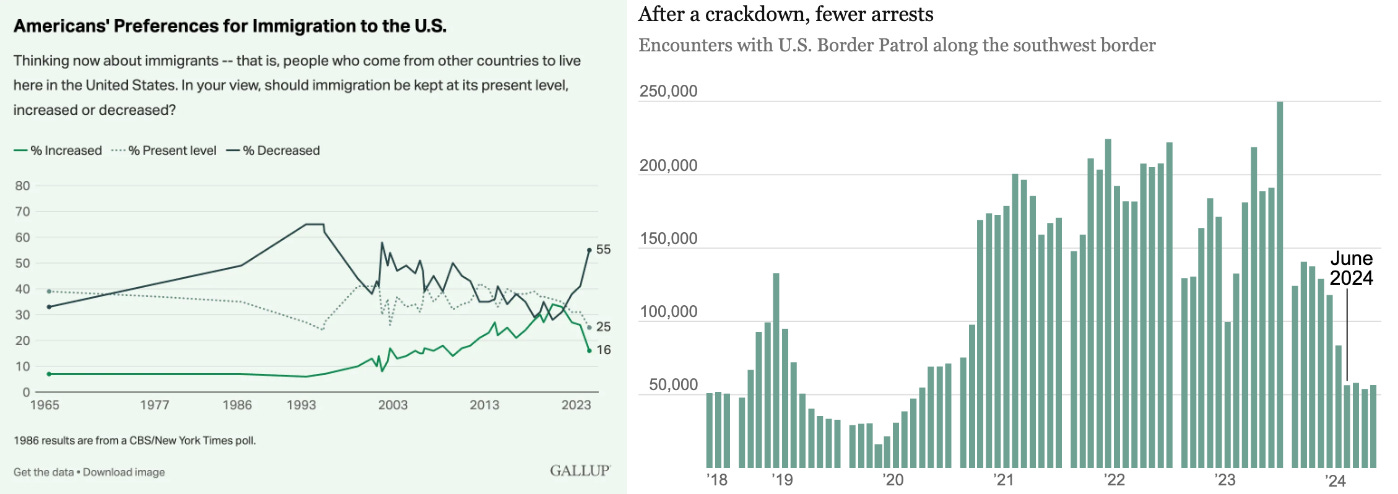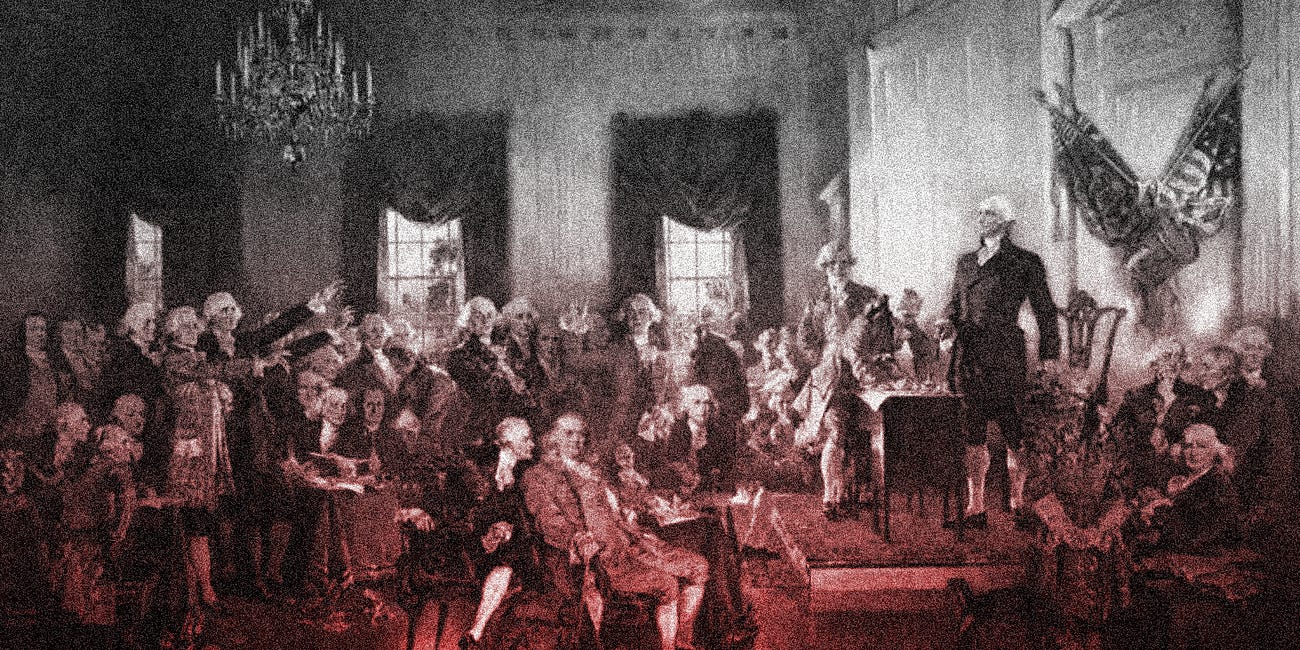Political scientists talk about the concept of polarization: when groups are sharply divided into opposing sides, as opposed to moderation which is when two sides become more similar in opinion. Negative polarization is when groups are motivated by their hate of the other side as opposed to love of their own side. So it’s striking that in the wake of the administration’s actions, they appear to have polarized Americans on the topic of free trade.
Allow me to let Bernie Sanders and Elizabeth Warren articulate the shifting views of Americans:
When you have these guys defending the stock market and citing economists, you’ve lost the plot. A similar phenomenon drove voters towards more strict views on immigration restrictions given the sharp increase of border crossings over that time period.
In my model, what’s happening is that presidents are being elected on the basis of certain issues. Voters believe that the new administration will be better on those issues than the previous one. I think that voters aren’t accounting for easily predictable failure modes of the new administration that they are empowering. Now, you could argue that voters do anticipate these tradeoffs and accept them, but that doesn’t square with examples like when the markets rallied after Trump’s election. In fact, it seemed like the very real possibility of Trump instituting large tariffs did not scan with the investor community at all. It also doesn’t track with the sharp change in views Americans display when a new administration comes into office.
Fundamentally, why do presidents feel entitled to tackle issues in extreme ways that they were frankly not elected to do? Given that there are a variety of examples of this occurring on both sides of the political aisle, there must be some structural reason behind this pattern of behaviour.
Borrowing political scientist and comparative politics scholar, Juan Linz, the issue may stem in part from the number of ways presidents are incentivized to act not only with speed, but executive rigor. Our presidential system of democracy ensures that the president has not one, but two swords of Damocles over his head at all times — in the form of fixed term lengths and term limits. Due to differences in how the president and legislature are elected, the president likely has a solid congressional majority against him, who also represent local interests. The president may believe that these legitimate limits on his authority are merely the product of a democratically illegitimate series of blockades, preventing him from serving his constituency, the true American constituency, in this case the national general electorate. This is called a plebiscitarian mandate. With time on the clock, and a legislature both ideologically polarized and paralyzed, the pressure on him to act mounts and mounts, pushing him towards constitutionally suspect behaviour.1
The good news from all of this is that in theory, voters should be more open to neoliberal-inclined candidates and policies, but I fear that might come with it yet another yo-yo towards unpopular policy on some other axis. The ultimate hope is that the powers of the president are treated with more scrutiny from Congress and the judiciary, but until then, I’m not so sure.
American democracy is unfixable
In The Perils of Presidentialism, the late political scientist Juan Linz contrasted presidentialist and parliamentary forms in terms of democratic stability. The nature of his argument concerns the structural impediments and restraints the president faces - all the while being the only nationally elected official, and the tension between these two facts…
I’ve seen this dumb argument that the court somehow ruled that the deportation was lawful and that the ruling was in fact 9-0 in favor of Trump. It was not. The ruling clearly states that Garcia was improperly deported. MAGA world remains unimpressive.








